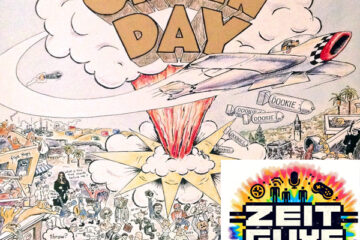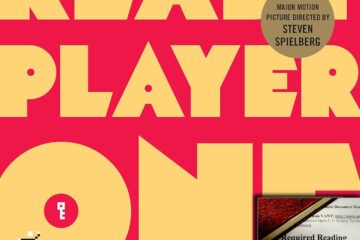Four score and seven years ago our fathers brought forth on this continent, a new nation, conceived in Liberty, and dedicated to the proposition that all men are created equal.
Now we are engaged in a great civil war, testing whether that nation, or any nation so conceived and so dedicated, can long endure. We are met on a great battle-field of that war. We have come to dedicate a portion of that field, as a final resting place for those who here gave their lives that that nation might live. It is altogether fitting and proper that we should do this.
But, in a larger sense, we can not dedicate — we can not consecrate — we can not hallow — this ground. The brave men, living and dead, who struggled here, have consecrated it, far above our poor power to add or detract. The world will little note, nor long remember what we say here, but it can never forget what they did here. It is for us the living, rather, to be dedicated here to the unfinished work which they who fought here have thus far so nobly advanced. It is rather for us to be here dedicated to the great task remaining before us — that from these honored dead we take increased devotion to that cause for which they gave the last full measure of devotion — that we here highly resolve that these dead shall not have died in vain — that this nation, under God, shall have a new birth of freedom — and that government of the people, by the people, for the people, shall not perish from the earth.
Abraham Lincoln
November 19, 1863
“Gettysburg Address” by Faiza Khaled
In July of 1863, the battle with the most casualties in the Civil War took place in Gettysburg, Pennsylvania. The Battle of Gettysburg had a total casualty of an estimated 51,000 troops and appeared as the bloodiest single battle of conflict. The Battle of Gettysburg is often referred to as the turning point of the Civil War by ending General Robert E. Lee’s attempt to invade the North after being defeated by the Union army led by George E. Meade. In commemoration of the lives lost and the blood that was shed, Abraham Lincoln declared the battle ground as a national cemetery through his speech, “Gettysburg Address.”
Lincoln begins his speech by alluding to the Declaration of Independence stating, “Four score and seven years,” referring to the year of 1776 in which the 13 colonies broke free from Great Britain’s oppressive regime. He gets more specific by stating “our fathers brought forth on this continent, a new nation, conceived in Liberty, and dedicated to the proposition that all men are created equal.” By stating this, it allows him to stress the importance of unity of all rather than division between the American people. By alluding to the Declaration of Independence, he attempts to remind the American people of the foundation that America was built on initially after gaining independence. With a sense of disappointment, he begins to address the current state of the nation as a state of division and violence.
Further, Lincoln goes on to praise the troops that fought in Gettysburg. Lincoln says “we have come to dedicate a portion of that field,” but then later goes on to say, “in a larger sense, we can not dedicate– we can not consecrate– we can not hallow– this ground.” By contradicting Lincoln’s own words, he intends to further emphasize the significance of the fallen soldiers as they fought for a united nation. He continues to stress the importance of gaining unity so that “these dead shall not have died in vain.” By Lincoln’s anaphoric use of “we” he raises more significance of a united unit, just as the soldiers lost their lives fighting for.
The Civil War was significantly caused around the argument of slavery. On July 4th 1863, the Union gained a major win and defeated the Confederate, turning the war around, but also resulting in a mass number of casualties. In Abraham Lincoln’s “Gettysburg Address,” he honors the fallen and initiates a national cemetery in Gettysburg. Throughout his speech, Lincoln keeps the soldiers intentions in mind and urges Americans to carry on their fight for a newly restored and united nation.
Gettysburg Address by Brooke Thomas
The battle of Gettysburg was a three-day battle between the Confederate and Union forces during the civil war. It took place around the town of Gettysburg, Pennsylvania, hence its name. Since the time of the ordeal, it has now been regarded as the bloodiest battle fought in the conflict and the “turning point” within the war. Confederate forces were dominating the Civil War for years, but after the battle of Gettysburg, the cards were in the north’s’ favor. Four months after the battle, President Abraham Lincoln gave a speech at the Gettysburg gravesite.
Lincoln’s “Gettysburg Address” was a short and punchy speech, with the run time being just over 2 minutes, and the word count being just under 300 (bensguide). Abraham Lincoln understood that a good speech doesn’t always have to be long, and that you can deliver an even stronger speech with the use of not many words.
In the third paragraph of the speech, he states that “this nation, under God, shall have a new birth of freedom”(Lincoln). Abraham Lincoln says this to say that the nation and soldiers will live on. The soldiers fought a good fight and put their life on the line for the issue of slavery. He makes it known that “these dead shall not have died in vain”(Lincoln). The soldiers fought for a reason that they believed in, and their hard work will pay off in the near future. They will not be forgotten about, he says. Instead, they will be remembered for their bravery and morality.
One literary device that Abraham Lincoln uses throughout the speech is the rule of threes. In the first sentence of the third paragraph, Abraham Lincoln says that “we cannot dedicate–we can not consecrate–we cannot hallow this ground”(Lincoln). Like many other speakers, he uses this tactic to make his phrases more effective and memorable. He uses this tactic again in the last sentence of the third paragraph when he says that “government of the people, by the people, for the people, shall not perish from the earth” (Lincoln). If no one remembered the rest of the contents of the speech, they surly remembered that concluding sentence.
Overview of the Gettysburg Address by Harris Eskew
The Gettysburg Address was one of the most critical presidential speeches in history. It is widely considered one of the most crucial pieces of literature delivered by Abraham Lincoln during the Civil War. It is remembered for its eloquence and its powerful message about equality. While controversial at first, the ideas of freedom and ideals of a self-governed society grew in people. Now in this day in age, the address proved to alter American history like no other piece of literature.
The speech was delivered on November 19, 1863, at the dedication of the Soldiers National Cemetery in Gettysburg, Pennsylvania. It was held here to honor the soldiers who had died during the Battle of Gettysburg. To begin this speech, addressing over 15,000 civilians, Lincon began with the famous statement, “Fourscore and seven years ago, our fathers brought forth this continent a new nation conceived in liberty and dedicated to the proposition that all men are created equal.” This statement refers to the signing of the Declaration of Independence, the most critical piece of literature yet created. He then continued the speech honoring the soldiers who had died just months earlier in the Battle of Gettysburg. He also spoke on the importance of our nation and proposed the idea we still live by today that all men are created equal. He emphasized the need for the country to unite and continue fighting for this principle amid a Civil War. One of the most famous lines from the Gettysburg Address is “government of the people, by the people, for the people.” This line embodies the principles of democracy. It emphasizes that the government is accountable to the people it serves. Lincoln’s words have continued to inspire and guide Americans throughout history.
Overall, the Gettysburg Address is a powerful and moving speech that reminds us of the sacrifices made by those who fought and died to persevere the United States and its founding principles. In addition, it serves as a reminder of the importance of democracy and the need to continue striving for a perfect union.


